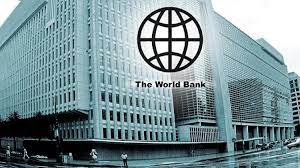World Bank and the UN Women, on Thursday, reaffirmed their commitment to support Federal Government to eliminate poverty and address issues affecting women and children.
They made the commitment during the 22nd Regular National Council on Women Affairs ( NCWA) organized by the Federal Ministry of Women Affairs (FMoWA) in Abuja.
The theme of the NCWA is “Gender Inclusivity and Women Economic Empowerment: Making the Change Work for Women and Children.”
Mr. Shubaham Chaudhuri, the Country Director of, the World Bank, in Nigeria, said the organization is committed to investing in children, and women, creating jobs, and economic opportunities, and strengthening governance.
He said, “if government around the world want to eliminate poverty, wants their nations to prosper, then gender equality and women empowerment is absolutely critical.”
Chaundhuri added that through the Supporting Women and Girls (SWAG) and Adolescent Girls Initiative for Learning and Empowerment (AGILE) project, the organization supported the government in the areas of education and empowerment.
“The most important thing to ensure the future of a country is to keep adolescent girls in school so that they can grow up to be powerful entrepreneurs and leaders.
“That is why we are closely working the ministries of women's affairs, education, finance, and all the northern states on this agenda, ” he added.
Also, Beatrice Eyong, UN Women's Country Representative to Nigeria and ECOWAS, said the organization is working toward promoting women’s representation in decision-making positions and the economic empowerment of women and girls.
She said “if we want to make the change work for women and girls, we have to increase women’s representation at the table.
Related Articles
“We need to ensure that the rights of women and girls are respected as found in the conventions and additional texts and protocols ratified by the Government of Nigeria.”
The Minister of Women Affairs, Mrs. Pauline Tallen, said the 22nd NCWA provided a forum for monitoring achievements, knowledge sharing and exchange of expertise on issues concerning women and children.
Tallen added that currently, 34 states have domesticated the Violence Against Persons Prohibition (VAPP) Act of 2015 and 32 states domesticated the Child Rights Act of 2003.
She added that the ministry had also been able to make available the National Sex Offenders Register and Referral Pathway at the federal and state levels, and increased the number of Safe Spaces for survivors of Gender-Based Violence (GBV).
She also highlighted the need for inclusive interventions toward enhancing socio-economic development to achieve the Economic Sustainability Plan (ESP) and the UN Sustainable Development Goals (SDGs).
She called for improved funding for the ministry and realignment of its mandate with the core principle of enhancing social inclusion and poverty reduction.
On his part, Gov. Abdulrahman Abdulrazaq of Kwara stressed the need for more women's representation and participation in governance.
Abdulrazaq said Kwara has 60 percent, women, in parliament, with three out of the four federal-level appointments occupied by women.
He added that since the decision to include women in key positions, positive changes in health, poverty reduction, and other areas have been recorded.








